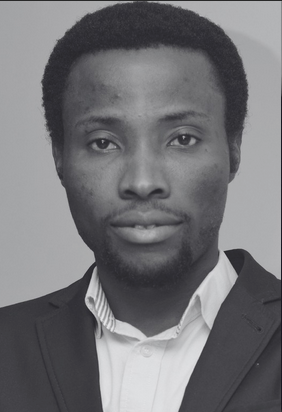19 accomplished new faculty members join the College of Arts and Science
Leaders in innovation and discovery, Vanderbilt College of Arts and Science faculty are equally passionate about mentoring and teaching students as they are about conducting groundbreaking research that changes the way we understand our world. The college is honored to welcome 19 new faculty members this fall, adding to our growing community of esteemed researchers and educators.
“Our talented new faculty represent a wide range of disciplines and expertise,” said Timothy P. McNamara, Searcy Family Dean of the College of Arts and Science. “Each one of these scholars and instructors will contribute to, and advance, the college’s mission of addressing the most pressing challenges facing our world today.”
The new faculty members span 11 departments and programs and join more than 600 faculty colleagues in the College of Arts and Science.
“My teaching aims to drive meaningful social change by equipping students and researchers with the tools to understand and tackle social challenges.” – Korede Ajogbeje (Medicine, Health, and Society)
“Through my teaching, I hope to show students that geologists and Earth scientists do more than look at rocks. Earth science is the study of how physics, chemistry, and biology work together to form our planet, and I cannot wait to show students how.” – Susannah Morey (Earth and Environmental Sciences)
“I hope that my research and teaching foster a more inclusive, empathetic, and insightful understanding of the complex linguistic and cultural worlds. I aim to empower students to critically examine the power structures and creative possibilities embedded in language, literature, popular culture, and visual arts.” – Bairam Khan (Asian Studies)
We are pleased to welcome:
- Korede Ajogbeje, Assistant Professor of the Practice, Department of Medicine, Health, and Society. Development and health issues, specifically in developing countries, with a focus on the effects of conflict and climate change on individual and household outcomes. “My teaching aims to drive meaningful social change by equipping students and researchers with the tools to understand and tackle social challenges.”
- Jacob Betz, Senior Lecturer, Department of History. American legal history, law and religion, and the history of family law. “I encourage my students to look twice at the world around them, especially aspects of that world they took for granted. In doing so, they might ask themselves what history went into creating that world. There’s always a story to uncover.”
- Su Cho, Assistant Professor, Department of English. Poet and essayist who writes about immigration, language, and lore.
- Shannon Hayes, Senior Lecturer, Department of Philosophy. How contemporary conditions, from pandemic isolation to artificial intelligence, generate new forms of temporal experience and collective affect.
- Corey Herrmann, Assistant Professor of the Practice, Department of Anthropology. Anthropological archaeologist working in western South America who incorporates insights from contemporary disaster anthropology into the study of past disasters.
- Hannah Housden, Senior Lecturer, Department of Mathematics. Algebraic topology and category theory.
- Heuijung Hur, Senior Lecturer, Department of Asian Studies. How modern technologies can enhance language learning and linguistic analysis, particularly in the context of Korean as a foreign language.
- Rosalind Isquith, Assistant Professor of the Practice, Department of Theatre. Scenic designer and artist with a goal to create an environment that invites viewers to critically consider their relationship to the world of the play.
- Tekin Karadag, Senior Lecturer, Department of Mathematics. Homological algebra, specifically Hopf algebras, Hochschild and Hopf algebra cohomologies, and Lie structure on those cohomologies.
- Bairam Khan, Senior Lecturer, Department of Asian Studies. Multilingualism, media linguistics, metaphor theory, language variation and change, and the application of linguistics in real-world contexts.
- Wanlin Li, Assistant Professor, Department of Mathematics. Number theory and arithmetic geometry.
- Susannah Morey, Assistant Professor, Department of Earth and Environmental Sciences. How extreme geomorphic events, particularly outburst floods and landslides, shape the Earth’s surface across multiple timescales.
- Jila Niknejad, Senior Lecturer, Department of Mathematics. Set theoretic topology and math education.
- Maya Singhal, Assistant Professor, Department of Asian Studies. How people navigate violence across generations, as well as race, capitalism, “racial capitalism,” gendered labor, and childhood.
- John Stromme, Senior Lecturer, Department of Economics. Applied microeconomics with a focus in education.
- Cesar Urquizo Ubillus, Assistant Professor, Department of Economics. Drivers of the joint decision of how many hours to work and which occupation to pick, and its effect on earnings inequality, as well as understanding the joint distribution of wealth, wages, and employment. “My hope is that my research can be used to inform public policy decisions to improve the welfare of all people in the economy.”
- Arianne Urus, Assistant Professor, Department of History. The connections between geopolitics, capitalism, and the non-human world.
- Mitchell VanVuren, Assistant Professor, Department of Economics. Using microdata and experimental results with macroeconomic models to better inform our understanding of growth and development at an aggregate level and the challenges that may come with scaling up small-scale interventions.
- Mengshan Ye Assistant Professor, Department of Chemistry. Develop innovative synthetic methodologies to precisely control metal-metal and spin-spin interactions in molecular systems, thereby unlocking innovative chemical reactivity and electronic properties. “My research aims to address fundamental scientific challenges and global sustainability needs. These advancements will drive significant progress in bioinorganic chemistry, catalysis, lanthanide chemistry, materials science, and quantum information science.”

